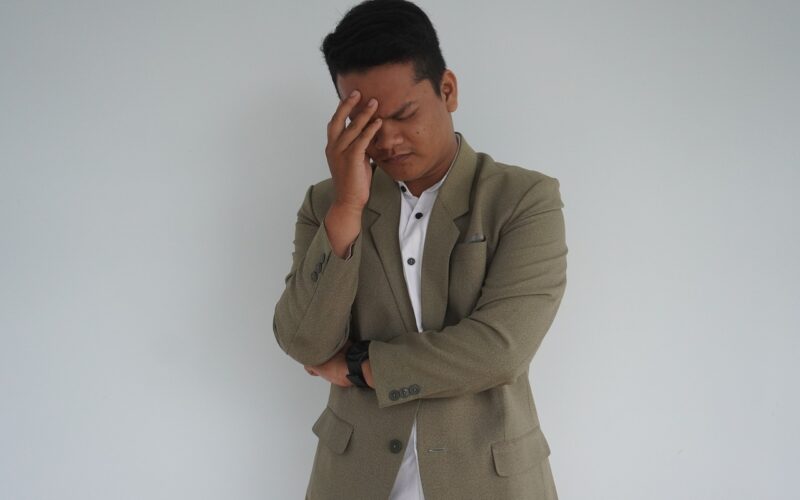Chronic Dizziness
Do you ever get dizziness that just doesn't seem to go away, even if it's been present for a long time? If so, you may be suffering from chronic dizziness. This feeling of unsteady disorientation can range from mild to severe and is often accompanied by other symptoms such as nausea, fatigue and poor concentration.
Yes, living with this condition isn’t easy at all, it affects both your personal life and professional life dramatically: constantly wondering where the bathroom is in case you need to puke or fearing sudden attacks when out on a business trip or family holiday. Understanding what causes chronic dizziness is an important part of finding ways to reduce its impact on your quality of life.
What is dizziness?
Dizziness is a common sensation that we all experience at some point or another. It is a feeling of lightheadedness or unsteadiness, often accompanied by a spinning sensation or the feeling that the world around us is moving.
Dizziness can be caused by a wide range of factors, from dehydration and stress to more serious underlying conditions such as inner ear disorders or low blood pressure. Symptoms can vary from person to person, but typically include nausea, vomiting, and difficulty concentrating. While dizziness itself is usually not a serious condition, it can sometimes be a sign of a more significant health problem.
If you experience dizziness on a regular basis, it's important to speak with your doctor to determine the underlying cause and receive appropriate treatment.
Common causes of dizziness
Dizziness can be a disorienting experience that leaves you feeling unsteady or even nauseous. While the causes of dizziness can vary, some of the common culprits include low blood pressure, anxiety and stress, and dehydration. Low blood pressure can occur when the brain is not receiving enough blood, causing feelings of lightheadedness or dizziness.
Similarly, when anxiety or stress levels are high, it can cause tension in the body, leading to symptoms of dizziness. Dehydration can also be a factor in causing dizziness, as it impacts blood flow and can lead to a drop in blood pressure.
It's important to identify the underlying cause of dizziness to treat it effectively and prevent it from affecting your day-to-day activities.
Diagnosing dizziness
Dizziness can be a frightening experience, leaving you feeling off balance or unsteady on your feet. While occasional dizzy spells are not typically a cause for concern, repeated or severe episodes can be a sign of an underlying condition.
If you experience dizziness along with other symptoms, such as hearing loss or chest pain, you should seek medical attention immediately. Your doctor can help diagnose the cause of your dizziness and recommend appropriate treatment.
Diagnostic tests may include a physical exam, blood tests, or imaging tests such as an MRI or CT scan. With the right diagnosis and treatment, dizziness can often be managed effectively, allowing you to get back to your daily routine.
Medication & natural remedies
Dizziness can be a frustrating and sometimes scary symptom to experience. Fortunately, there are several treatments available to alleviate or even eliminate dizziness. Medications, such as meclizine or betahistine, can target the underlying causes of dizziness, such as inner ear problems.
However, natural remedies may also be effective, such as increasing water intake to prevent dehydration or performing balance exercises to improve stability.
It's important to consult with a healthcare professional to determine the best treatment plan for your specific case of dizziness.
Practicing prevention
Dizziness is a common symptom that can arise due to various factors, including stress, dehydration, and anxiety. To prevent dizzy spells, it is essential to stay hydrated, avoid alcohol and cigarettes, and practice relaxation techniques such as meditation or yoga.
Another important tip for managing stress levels is to maintain a healthy diet, engage in regular exercise, and get enough sleep. Overexertion and exhaustion can exacerbate symptoms of dizziness; therefore, it is fundamental to pace oneself throughout the day and take frequent rest breaks to help alleviate stress and prevent dizzy spells.
By adopting these prevention measures, individuals can reduce their risk of experiencing dizzy spells and promote their overall wellbeing.
Coping strategies
Living with chronic dizziness can be challenging, but there are mindful coping strategies that can reduce its impact on day-to-day life. One effective strategy is to practice mindful breathing techniques that can help calm the mind and reduce stress levels.
Another helpful tip is to maintain a regular sleep schedule and avoid caffeine and alcohol to prevent exacerbating symptoms. Daily exercise, such as yoga or meditation, can also improve balance and alleviate feelings of dizziness. It's important to remember that coping with chronic dizziness is a process, and finding what works best for you may take time and experimentation.
However, by incorporating these mindful tips into your daily routine, you can improve your overall well-being and reduce the impact of chronic dizziness on your life.


























